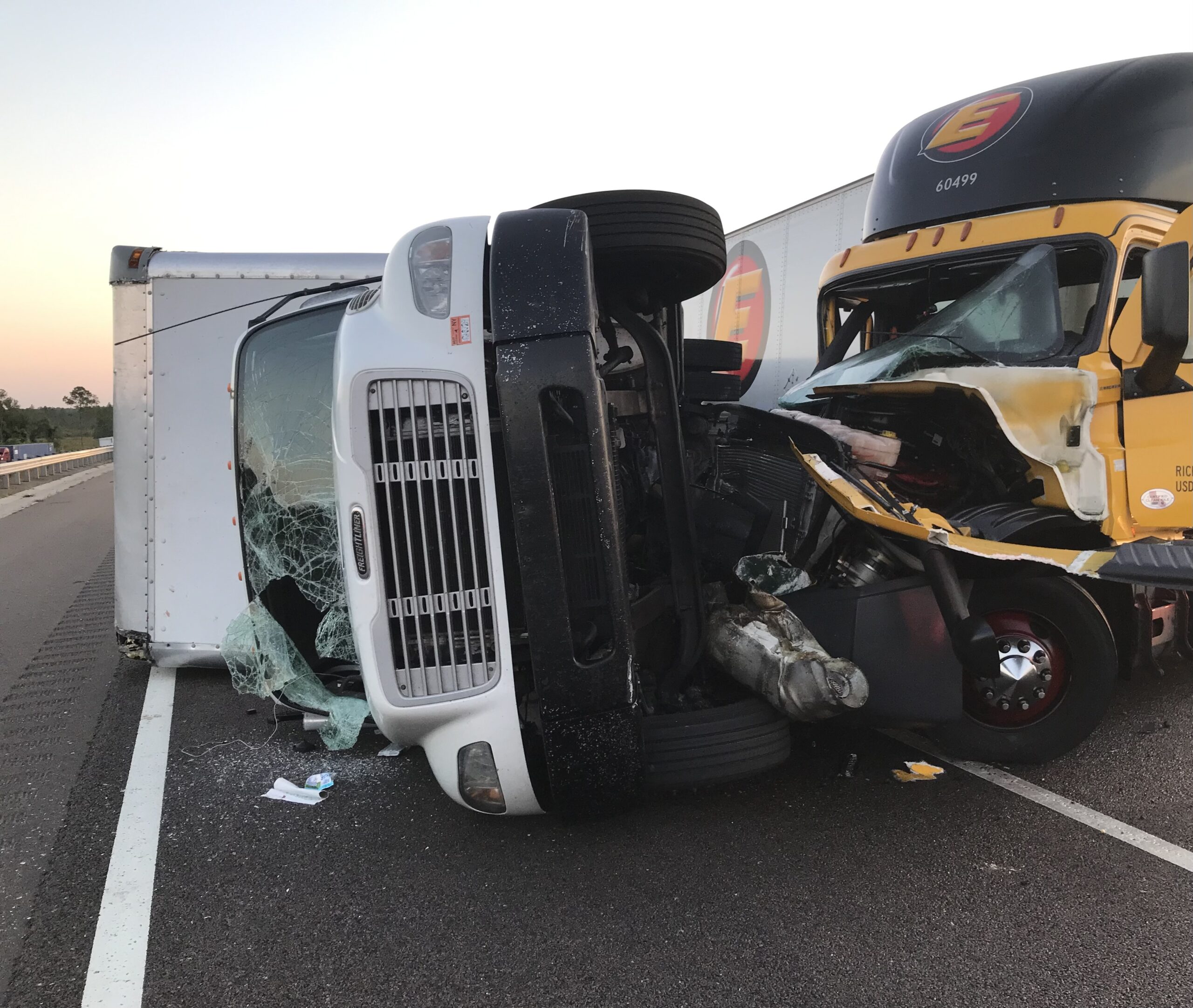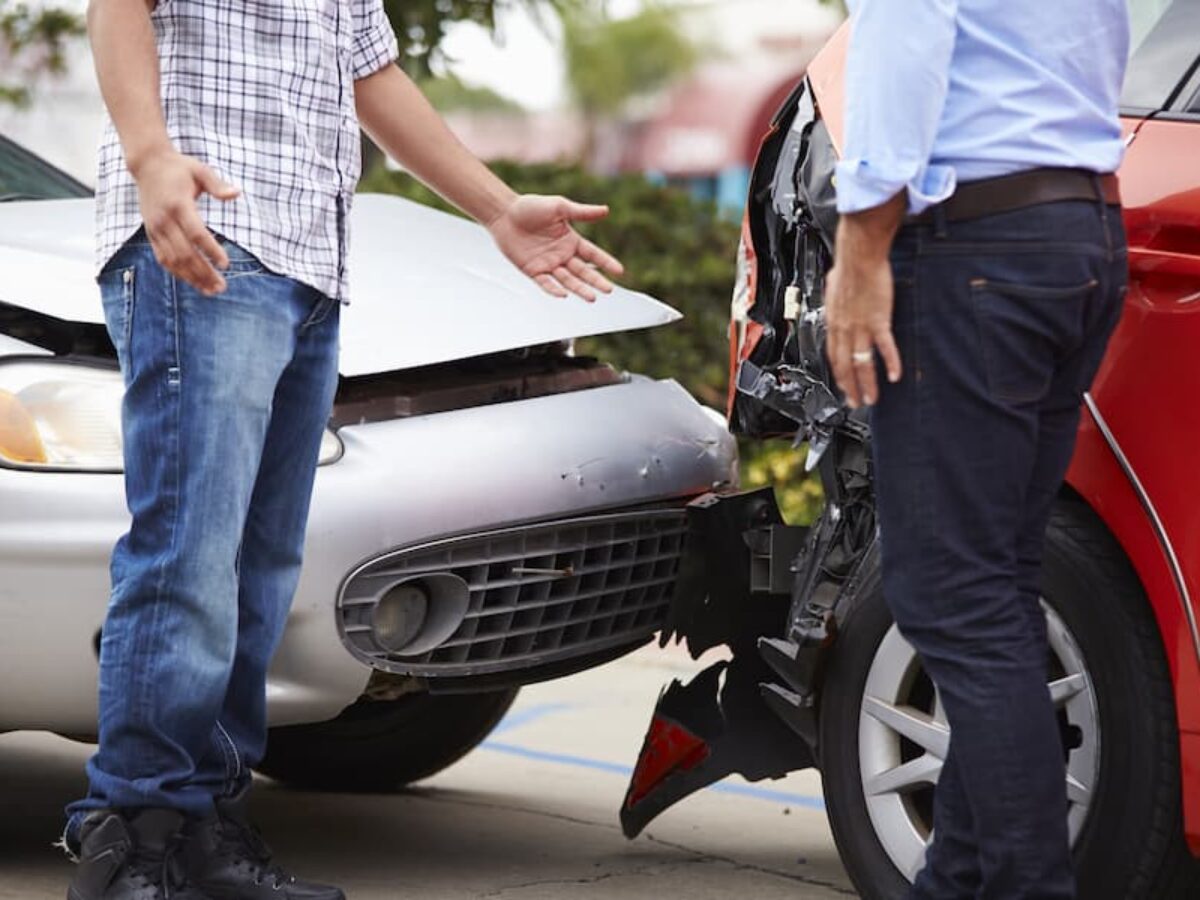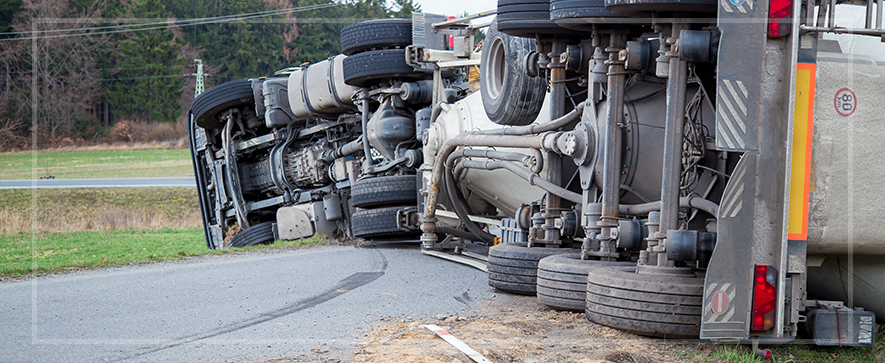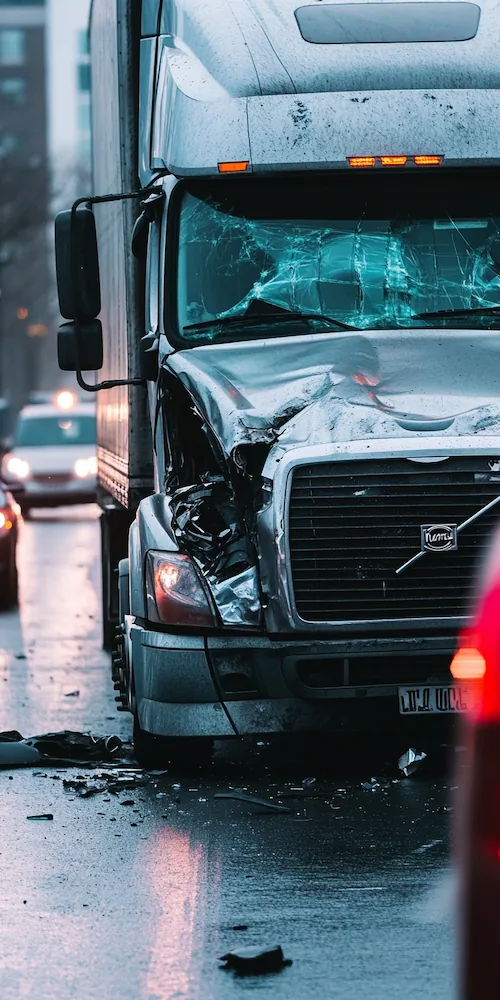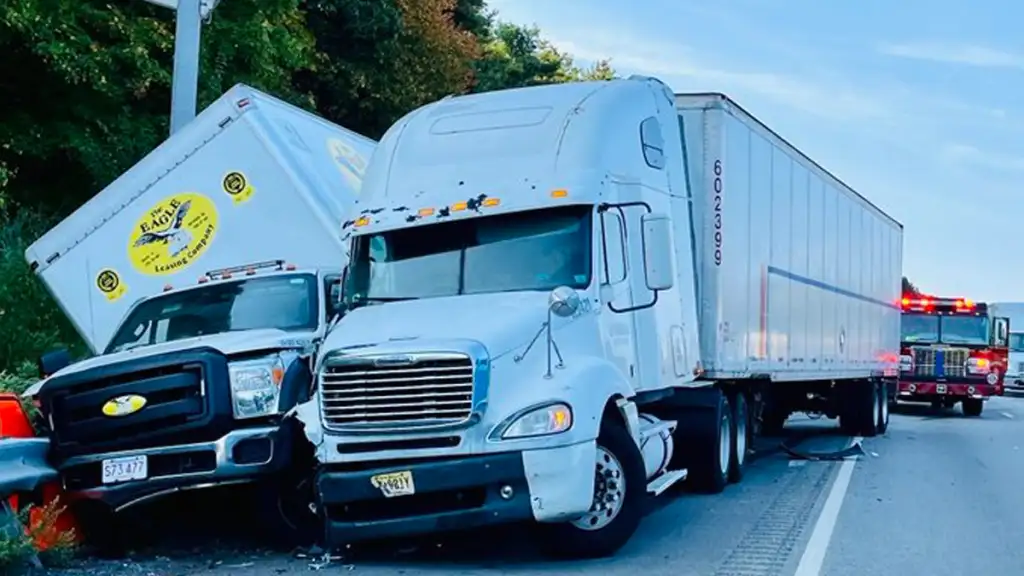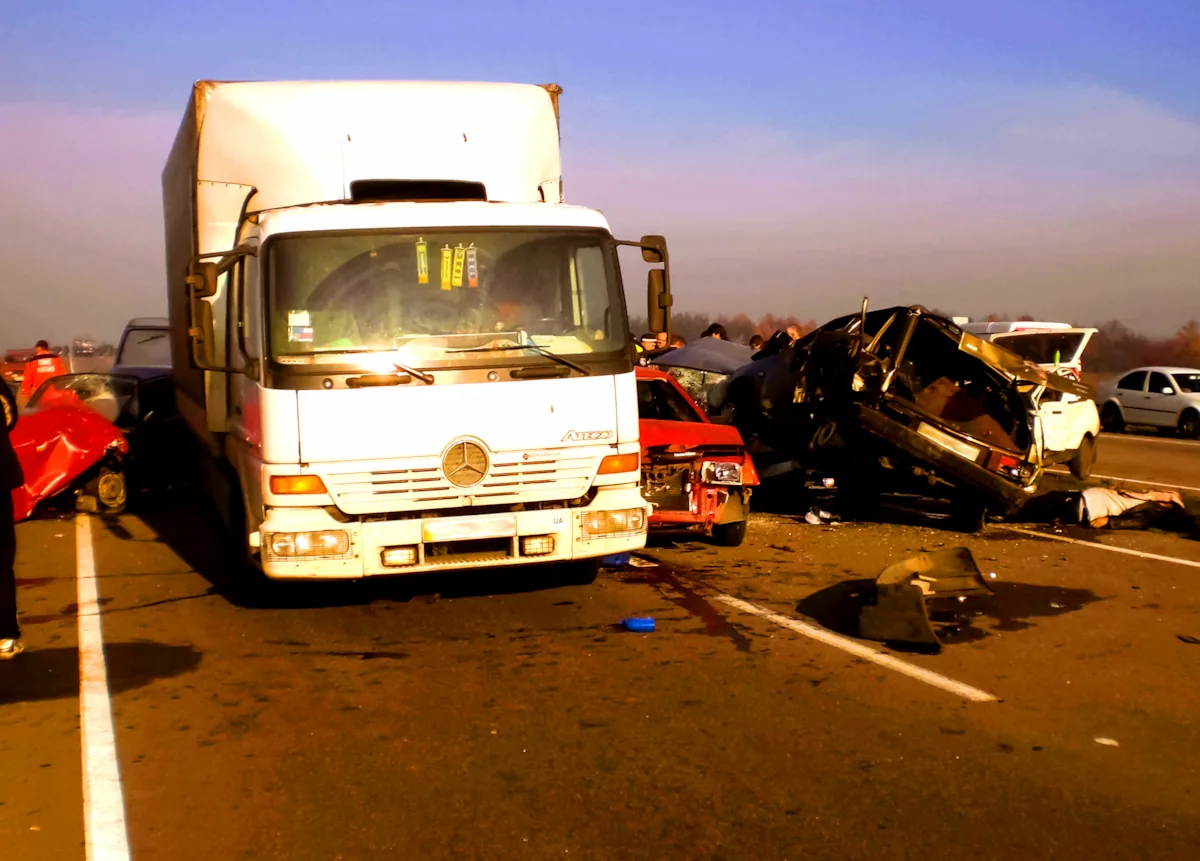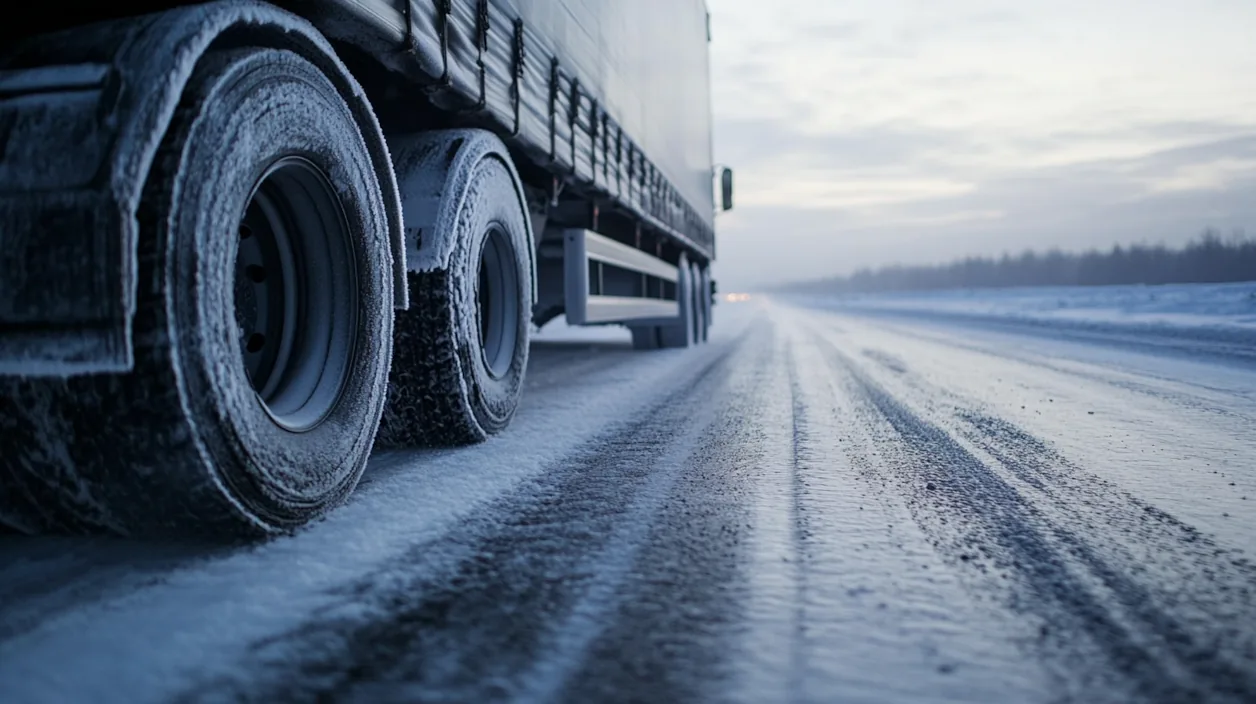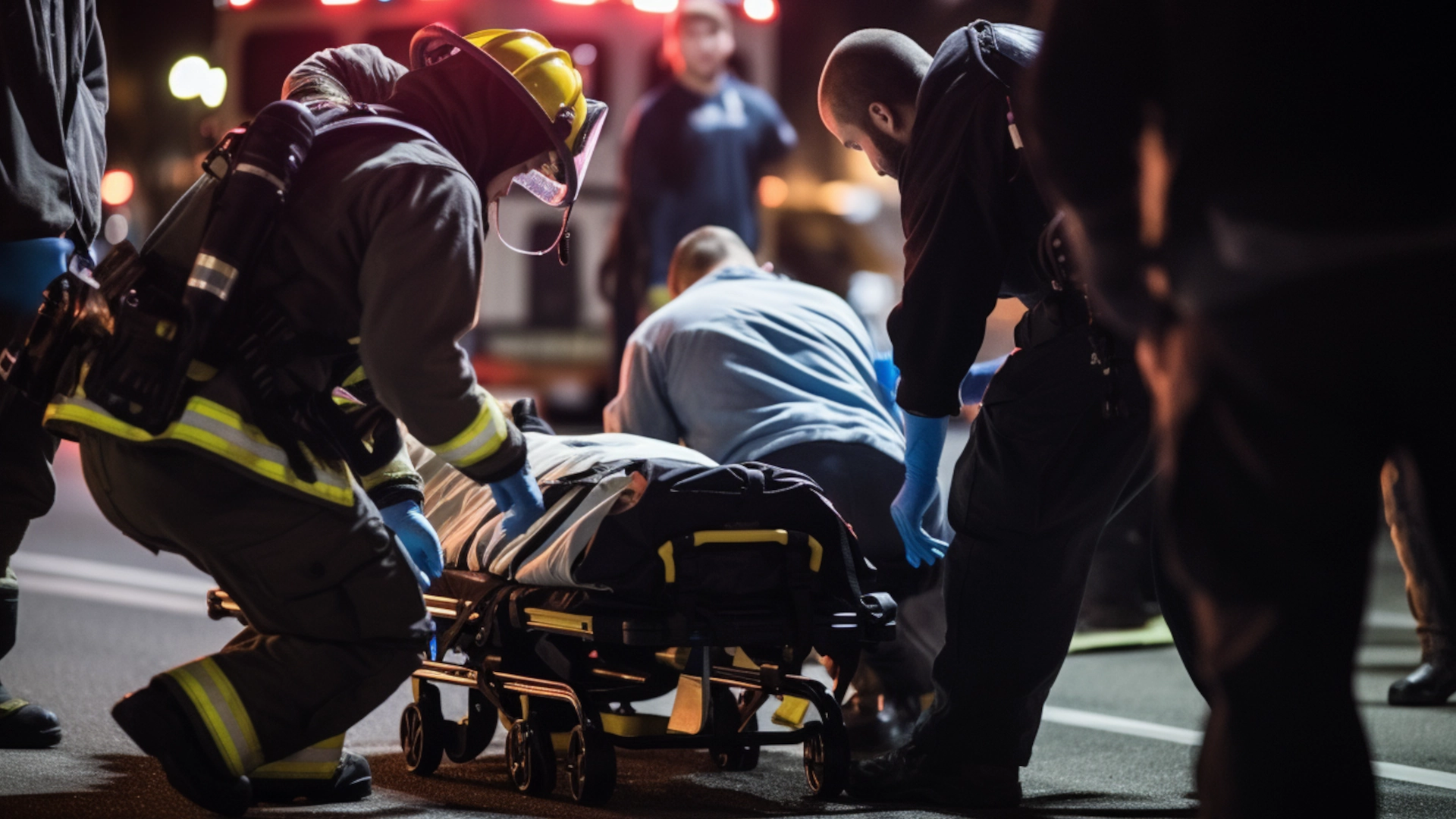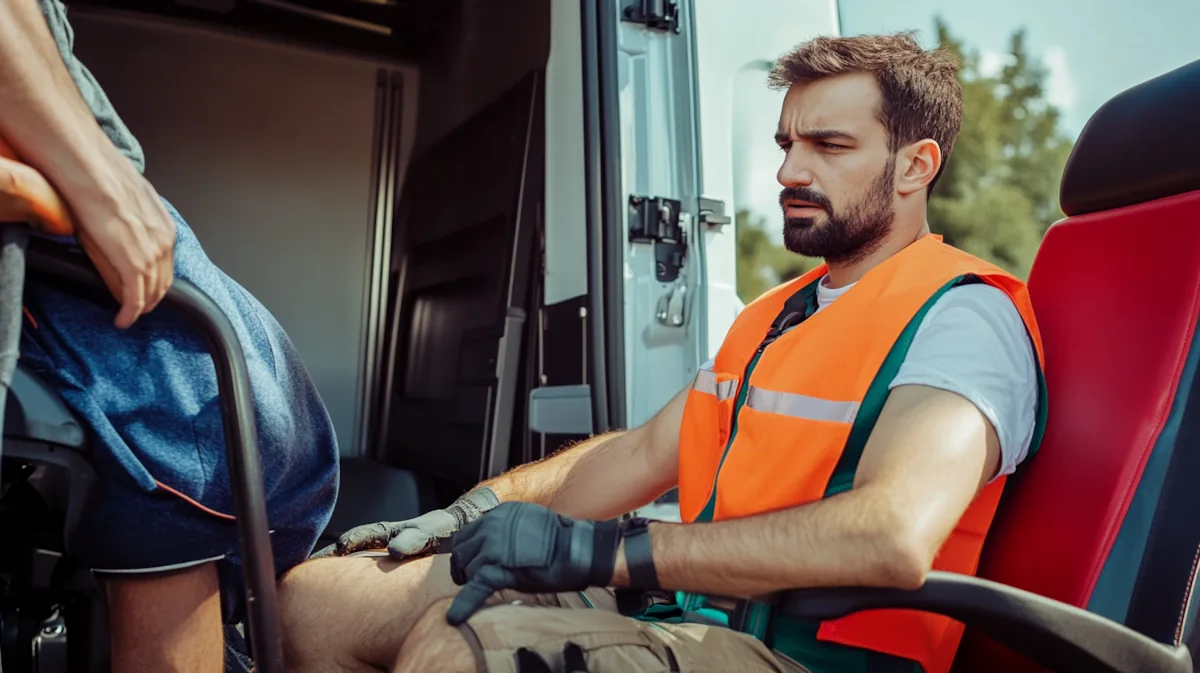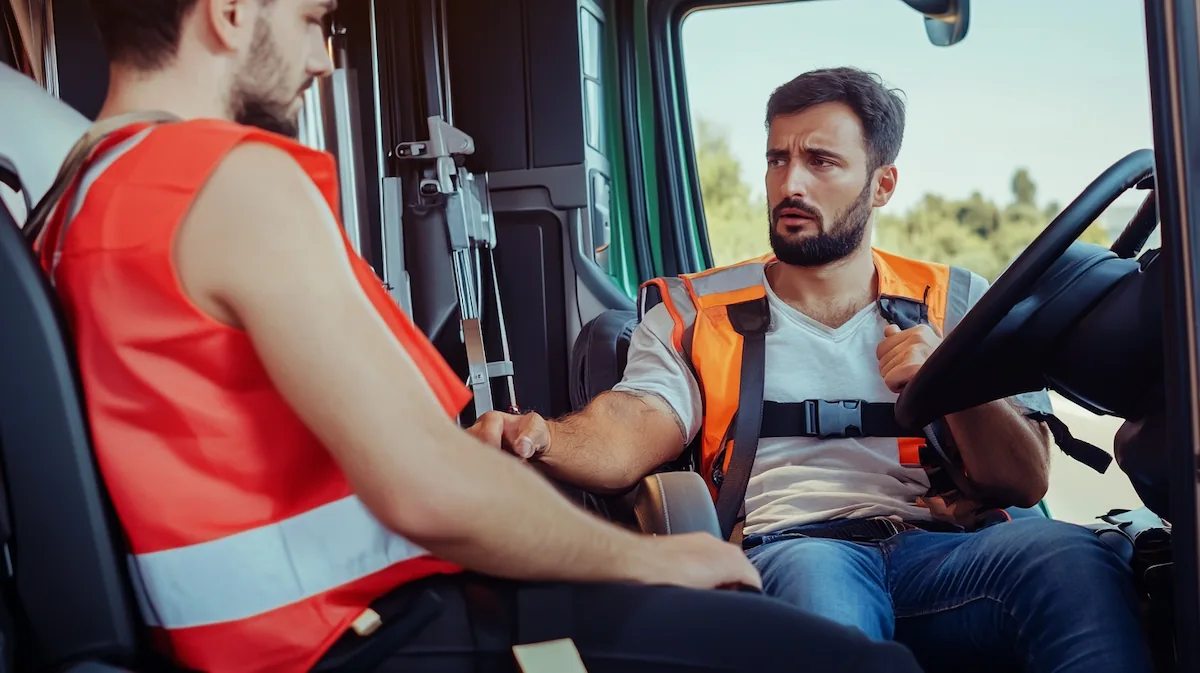Atlanta Commercial Truck Accident Attorneys
Atlanta is a major transportation hub, with thousands of commercial trucks passing through its highways every day. The city sits at the intersection of several major interstates, including I-285, I-75, I-85, and I-20, making it a crucial corridor for freight transport. While these trucks play a vital role in Georgia’s economy by delivering goods across the state and beyond, they also pose serious dangers to other drivers.
Unlike standard car accidents, crashes involving 18-wheelers, semi-trucks, and other large commercial vehicles introduce unique legal and logistical challenges. A fully loaded tractor-trailer can weigh up to 80,000 pounds, making it 20 times heavier than the average passenger car. The sheer size and weight disparity between commercial trucks and smaller vehicles means that collisions are often catastrophic, leading to severe injuries, long-term disabilities, and even fatalities.
At Karell Trial Attorneys, we fight to hold trucking companies accountable and ensure injured victims recover the full compensation they deserve. Our Atlanta commercial truck accident lawyers have extensive experience handling complex truck accident cases, and we work aggressively to protect our clients’ rights. We understand the specific regulations, industry practices, and legal tactics used in these cases, and we are committed to securing maximum compensation for victims and their families.
If you or a loved one has been injured in a commercial truck accident in Atlanta, don’t let trucking companies and their insurers take advantage of you. Contact Karell Trial Attorneys today for a free consultation and let us fight for the justice and compensation you deserve.
Recent Results
$675,000
REAR END COLLISION
$225,000
TRIP AND FALL
$300,000
ATV ACCIDENT
$200,000
RIDESHARE COLLISION
$300,000
TOW TRUCK COLLISION
$500,000
GARBAGE TRUCK COLLISION
How Are Commercial Truck Accidents More Complex than Car Accidents
Truck accidents involve unique legal, logistical, and financial complexities that make them far more challenging than standard car crashes. Unlike collisions between personal vehicles, truck accidents often require extensive investigations, specialized legal knowledge, and an understanding of federal and state trucking regulations. Victims face larger insurance policies, multiple liable parties, and corporate defense strategies designed to minimize payouts.
Unlike a standard car accident, where only the two drivers are usually involved, truck accidents can implicate trucking companies, manufacturers, cargo loaders, and maintenance providers. Additionally, the sheer size and weight of commercial trucks make these crashes significantly more destructive, leading to more severe injuries, higher medical costs, and longer recovery times.
Larger Vehicles, Greater Impact
Commercial trucks, including 18-wheelers, semi-trucks, and box trucks, weigh significantly more than standard passenger vehicles. A fully loaded tractor-trailer can weigh up to 80,000 pounds, while an average car weighs about 3,000 to 4,000 pounds. This 20-to-1 weight ratio makes any collision between a truck and a smaller vehicle highly dangerous, if not deadly.
Longer Stopping Distances Create Risk
A commercial truck requires up to 40% more distance to stop than a regular car, especially when roads are wet or when cargo is improperly loaded. If a truck driver is distracted, fatigued, or tailgating, they may not be able to stop in time to avoid a devastating crash.
Commercial Trucking Companies Have Aggressive Legal Teams
Trucking companies and their insurers immediately mobilize legal teams when a crash occurs. Unlike private motorists, commercial trucking companies anticipate lawsuits and are prepared to fight them aggressively.
Trucking Companies Can Attempt to Cover Their Tracks
Many companies dispatch their own accident investigators to the scene within hours to:
- Collect evidence before victims have a chance to do so.
- Influence accident reports in their favor.
- Coach drivers on what to say to avoid liability.
Insurance Adjusters Work Against You
Commercial trucks can carry insurance policies worth millions of dollars, meaning insurance adjusters will work tirelessly to find ways to deny or undervalue your claim. Without an experienced truck accident attorney, victims may accept a lowball settlement that fails to cover long-term medical costs and lost wages.
Multiple Parties Involved
Unlike standard car accidents, where liability is typically limited to the drivers involved, truck accidents often involve multiple parties, each of whom may share some level of responsibility. The involvement of trucking companies, manufacturers, cargo loaders, and maintenance providers adds significant complexity to these cases.
Because commercial trucks operate under federal and state regulations, determining liability requires analyzing contracts, maintenance records, and safety compliance reports—a process that demands legal expertise. Holding the right parties accountable is crucial for ensuring victims receive full and fair compensation for their injuries and losses.
Who Can Be Held Liable in a Truck Accident?
Several parties are immediately at risk of liability the moment a commercial truck accident happens. Below are some of those who are at risk of sharing some of the liability in an accident.
The Truck Driver
While truck drivers must follow strict safety protocols set by federal and state laws, many accidents occur due to driver negligence or reckless behavior. If the truck driver caused the crash due to violations of traffic laws or industry regulations, they may be directly liable.
Common Forms of Truck Driver Negligence
- Speeding or Driving Recklessly – Because of their longer stopping distances and massive weight, trucks cannot maneuver as easily as smaller vehicles. A speeding truck is far more likely to cause severe damage in a crash.
- Fatigue from Violating FMCSA’s Hours of Service Rules – Federal regulations limit the number of hours a trucker can drive in one shift, but some drivers exceed these limits to meet tight delivery schedules. Fatigue slows reaction times and impairs judgment, leading to crashes.
- Driving Under the Influence of Drugs or Alcohol – A trucker operating under the influence of drugs, alcohol, or even prescription medication endangers everyone on the road.
- Distracted Driving – Using a phone, GPS, or onboard communication system while driving a massive truck can lead to devastating crashes. Even taking their eyes off the road for a few seconds can be deadly.
If a truck driver acted negligently or violated safety laws, they can be held responsible for the accident.
The Trucking Company
Even if the truck driver made a mistake, the trucking company may also bear substantial liability under the legal principle of vicarious liability, meaning an employer is responsible for the actions of its employees. Trucking companies can also be held directly liable for their own negligence if they fail to follow industry standards and safety regulations.
How Trucking Companies May Be Negligent
- Failure to Train Drivers Properly – New or inexperienced truckers must be trained in defensive driving techniques, handling hazardous conditions, and emergency response. When trucking companies cut corners, poorly trained drivers pose a danger to others on the road.
- Forcing Drivers to Meet Unrealistic Deadlines – Some trucking companies pressure drivers to violate federal Hours of Service regulations and drive beyond legal limits to meet tight delivery schedules. This leads to fatigue-related crashes.
- Neglecting Truck Maintenance – Trucking companies are required to regularly inspect and maintain their fleet. If a brake failure, tire blowout, or steering malfunction caused the crash due to poor maintenance, the company may be held responsible.
- Hiring Drivers with Poor Safety Records or Criminal Histories – Some companies hire drivers without conducting proper background checks. If a trucking company fails to vet drivers with prior DUIs, reckless driving citations, or accidents, they can be held liable for negligent hiring.
Because trucking companies carry high-dollar insurance policies, their legal teams work aggressively to shift blame onto the driver or other parties. A skilled truck accident attorney can counter these tactics and hold the company accountable.
Freight Loaders & Cargo Companies
Many commercial trucks are not loaded by the driver or trucking company—instead, third-party freight loaders are responsible for ensuring that cargo is properly secured and balanced. When cargo shifts during transport, it can cause rollovers, jackknife accidents, or loss of vehicle control.
Cargo-Related Causes of Truck Accidents
- Unsecured Cargo – Freight that is not properly tied down can shift suddenly, throwing the truck off balance and causing a crash.
- Overloaded Trucks – Federal law limits gross vehicle weight to 80,000 pounds, but some companies exceed this limit, increasing the risk of brake failure or rollovers.
- Uneven Load Distribution – If cargo is not evenly distributed, the truck becomes harder to control, especially when turning or stopping suddenly.
If a freight loading company violated weight or cargo regulations, they may be held responsible for the crash.
Truck Manufacturers
Some truck accidents occur not because of driver error, but because of mechanical failures caused by defective truck parts.
Common Truck Defects That Lead to Accidents
- Brake Failures – A defective braking system reduces stopping power, increasing the likelihood of rear-end collisions or runaway truck accidents.
- Steering Malfunctions – Problems with steering components can make a truck difficult or impossible to control, especially at high speeds.
- Tire Blowouts – A defective or recalled tire can burst unexpectedly, causing the truck to swerve uncontrollably into other lanes.
If a defective truck or truck part contributed to the crash, the manufacturer may be liable under product liability laws.
Maintenance Providers
Because trucks require frequent inspections and repairs, many trucking companies outsource maintenance to third-party mechanics and service providers. If a mechanic fails to properly inspect, repair, or replace worn-out parts, they can share liability for the crash.
Examples of Maintenance-Related Negligence
- Failing to replace worn brake pads or tires.
- Neglecting to check for engine malfunctions.
- Improperly repairing a defective part.
If a maintenance failure contributed to the crash, the repair company could be held responsible for their role in causing the accident. Determining who is liable requires detailed accident reconstruction, expert analysis, and aggressive legal action, all of which Karell Trial Attorneys can handle for you.
State and Federal Regulations Governing Commercial Trucking
Commercial trucking is highly regulated by both Georgia state law and federal agencies, primarily the Federal Motor Carrier Safety Administration (FMCSA) and the Department of Transportation (DOT). These regulations exist to protect the safety of all drivers on the road, ensuring that trucks are properly maintained, driven responsibly, and operated within legal limits.
Key Regulations That Affect Your Case
When a trucking company or driver violates these safety regulations, they increase the risk of serious accidents. If a violation played a role in your crash, those responsible can be held legally liable for their negligence.
Hours of Service (HOS) Rules: Preventing Drowsy Driving
Truck drivers spend long hours on the road, often driving across multiple states in a single shift. Fatigue is a leading cause of trucking accidents, as drowsy driving slows reaction times and impairs judgment. To combat fatigue-related crashes, the FMCSA enforces Hours of Service (HOS) regulations, which set strict limits on how long truckers can legally operate their vehicles without rest.
FMCSA Hours of Service Limits
- 11-hour driving limit per shift – A truck driver cannot drive for more than 11 hours straight after 10 consecutive hours off duty.
- 14-hour workday limit – A trucker must stop driving after being on duty for 14 consecutive hours, even if they have not driven for the full 11 hours.
- Mandatory 30-minute rest break – Drivers must take a 30-minute break after 8 consecutive hours of driving.
- Weekly driving limits – Truckers cannot drive more than 60 hours over seven days or 70 hours over eight days without taking a 34-hour rest period.
How Violating HOS Rules Can Lead to an Accident
- Fatigue reduces alertness, causing slower reaction times and poor decision-making.
- Drowsy drivers may fall asleep at the wheel, veer into other lanes, or fail to stop in time.
- Some trucking companies pressure drivers to falsify logbooks, forcing them to drive beyond legal limits.
If a trucker violated Hours of Service laws leading to your accident, they or their employer could be held accountable.
Weight Limits & Cargo Restrictions: Preventing Overloaded and Unstable Trucks
Overloaded and improperly loaded trucks are more difficult to control, increasing the risk of rollovers, brake failures, and multi-vehicle collisions. To protect public safety, the federal government strictly regulates truck weight limits and cargo loading procedures.
Federal Weight Limits for Commercial Trucks
- 80,000-pound maximum weight – The gross vehicle weight limit (including the truck, cargo, fuel, and passengers) cannot exceed 80,000 pounds.
- Axle weight restrictions – A single axle cannot carry more than 20,000 pounds, while a tandem axle cannot exceed 34,000 pounds.
- Bridge formula weight limits – Federal guidelines prevent trucks from carrying excessive weight that could damage roads and bridges.
Cargo Loading and Securement Requirements
- Weight must be evenly distributed to prevent rollovers or loss of control.
- Hazardous materials must be properly labeled and transported in approved containers.
- Cargo must be securely fastened using straps, chains, or other restraints.
How Violating Weight & Cargo Regulations Can Cause an Accident
- Excess weight strains brakes, increasing stopping distances and the likelihood of brake failure.
- Improperly secured cargo can shift while driving, throwing the truck off balance and causing a rollover accident.
- Overloaded trucks struggle to make turns, increasing the risk of jackknife accidents.
If a truck was overloaded or improperly loaded, the trucking company, cargo loaders, or freight handlers may be liable for negligence.
Drug & Alcohol Testing Requirements: Ensuring Sober Drivers on the Road
Because truck accidents can be catastrophic, federal law strictly regulates drug and alcohol use among commercial drivers. The FMCSA requires mandatory drug and alcohol testing for truckers to ensure safe driving behavior.
FMCSA Drug and Alcohol Testing Requirements
Truck drivers must undergo drug and alcohol testing in the following situations:
- Pre-employment testing – Trucking companies must screen drivers for drugs before hiring them.
- Random drug testing – Drivers are subject to unannounced, random testing throughout the year.
- Post-accident testing – If a crash results in a fatality, serious injury, or vehicle damage, the driver must be tested for drugs and alcohol.
- Reasonable suspicion testing – If a supervisor suspects a driver is impaired, they can require immediate testing.
- Return-to-duty testing – Drivers who previously tested positive must complete substance abuse treatment and pass a test before returning to work.
Prohibited Alcohol & Drug Limits for Truck Drivers
- 0.04% Blood Alcohol Content (BAC) Limit – This is half the legal limit for regular drivers (0.08%).
- No alcohol use within 4 hours of driving – Truckers cannot consume alcohol within four hours before starting their shift.
- Zero tolerance for drug use – Drivers cannot have any controlled substances in their system, including marijuana, cocaine, amphetamines, opioids, and PCP.
How Drug & Alcohol Violations Lead to Accidents
- Impaired drivers have slower reflexes and poor judgment.
- Drunk drivers struggle to maintain control, leading to swerving or sudden braking.
- Some trucking companies ignore positive test results, allowing unsafe drivers on the road.
If a truck driver was impaired at the time of the accident, or if their employer failed to enforce mandatory testing requirements, they may be held legally responsible.
What Happens When Trucking Companies Violate Federal Regulations?
If a trucking company, driver, or third-party operator violates FMCSA safety laws, they can face serious legal consequences, including:
- Hefty fines from federal agencies (FMCSA fines can reach tens of thousands of dollars per violation).
- Loss of commercial driver’s licenses (CDLs) for truckers who repeatedly violate safety rules.
- Criminal charges for severe violations, including reckless driving, falsifying safety records, or DUI-related crashes.
- Civil liability in personal injury lawsuits, meaning victims can sue for medical expenses, lost wages, and pain and suffering.
At Karell Trial Attorneys, we thoroughly investigate your truck accident to determine whether state or federal laws were violated. If regulatory violations played a role in your crash, we will aggressively pursue justice to ensure you receive the maximum compensation possible.
Common Causes of Commercial Truck Accidents
Commercial truck accidents often result from a combination of human error, mechanical failure, and environmental factors. Unlike standard car crashes, trucking accidents involve massive vehicles with complex operating systems, making the causes more varied and sometimes more difficult to determine. When truck drivers, trucking companies, or third-party contractors fail to follow safety protocols, the results can be catastrophic.
Below are some of the most common causes of commercial truck accidents and how they contribute to dangerous collisions.
Driver Fatigue
Fatigue is one of the leading causes of commercial truck accidents. Long-haul truckers often exceed legally allowed driving hours to meet tight delivery schedules, sometimes under pressure from their employers. This results in drowsy driving, which is just as dangerous as driving under the influence of alcohol or drugs. The Federal Motor Carrier Safety Administration (FMCSA) enforces Hours of Service (HOS) regulations to prevent driver exhaustion. These rules limit truckers to an 11-hour maximum driving time per shift and require a mandatory 30-minute break after 8 consecutive hours.
When drivers violate these regulations, reaction times slow, decision-making is impaired, and the risk of accidents significantly increases. Some truckers experience microsleep episodes, where they briefly lose consciousness for a few seconds, which is enough time for their truck to veer into another lane or rear-end a vehicle. If a trucker involved in an accident was found to be violating HOS rules, they and their employer could be held liable for reckless and negligent driving.
Speeding and Reckless Driving
Large commercial trucks require far more time to stop than passenger vehicles, making speeding especially hazardous. A fully loaded semi-truck traveling at highway speeds can take up to 525 feet—nearly two football fields—to come to a complete stop. When truck drivers exceed speed limits or fail to slow down in hazardous conditions, they put everyone on the road at risk.
Speeding increases the likelihood of rear-end collisions, where a trucker may not be able to brake in time, leading to severe injuries or fatalities. Trucks also become more difficult to control at high speeds, which can result in jackknife accidents, rollovers, or multi-vehicle pileups. In addition, reckless driving behaviors such as tailgating, sudden lane changes, and failure to adjust for weather conditions make commercial trucks even more dangerous. If a speeding truck caused a collision, both the driver and their employer may be held legally responsible for negligence.
Distracted Driving
Truck drivers spend long hours behind the wheel, increasing the temptation to engage in distractions. However, any moment of inattention can lead to devastating consequences. The FMCSA strictly prohibits texting or using handheld devices while operating a commercial vehicle, yet distracted driving remains a major contributor to truck accidents.
Distractions can come in many forms, including texting, talking on the phone, adjusting a GPS device, eating, drinking, or even reaching for objects in the cab. Some truckers also experience "highway hypnosis," where long hours of driving cause mental disengagement, leading to slow reaction times and missed hazards. Even a two-second distraction can mean the difference between avoiding an accident or causing a fatal crash. If a distracted truck driver caused a collision, they and their trucking company may be held accountable for their reckless behavior.
Defective Truck Parts and Mechanical Failures
A commercial truck is a complex machine with thousands of moving parts, and any mechanical failure can have catastrophic results. Trucking companies are required to perform regular inspections and maintenance, but some neglect these responsibilities, leading to serious accidents. Mechanical failures are often traced back to negligence, whether on the part of the trucking company, maintenance provider, or the truck manufacturer.
One of the most common causes of truck accidents is brake failure, which occurs when worn-out or overheated brakes reduce stopping power. In fact, the FMCSA reports that brake system failures contribute to nearly 30% of all truck accidents. Another common issue is tire blowouts, which can cause a truck to swerve into oncoming traffic or roll over. Steering malfunctions, engine problems, and trailer hitch failures can also lead to devastating crashes. If an accident was caused by a defective truck part or poor maintenance, the trucking company, manufacturer, or third-party repair service may be held responsible.
Improperly Trained or Inexperienced Drivers
Driving a commercial truck requires specialized training, but some trucking companies cut corners when hiring new drivers. Instead of ensuring their employees receive proper instruction on defensive driving, handling hazardous conditions, and emergency braking, some companies rush drivers onto the road with inadequate preparation.
Inexperienced drivers may struggle with basic truck maneuvers, such as navigating sharp turns, merging onto highways, or controlling a fully loaded trailer on steep grades. Poorly trained drivers are also more likely to panic in emergency situations, leading to rollovers, jackknifing, or brake failures. If a trucking company failed to properly train its drivers, it can be held liable for negligent hiring practices.
Driving Under the Influence of Alcohol or Drugs
Truck drivers must remain sober at all times while operating their vehicles, yet some drivers still engage in substance abuse. Federal law strictly prohibits truckers from having a blood alcohol content (BAC) above 0.04%—which is half the legal limit for regular drivers. However, some truckers use alcohol, stimulants, or prescription drugs to stay awake for long shifts, leading to impaired judgment and slower reaction times.
The FMCSA requires mandatory drug and alcohol testing for truck drivers, including pre-employment testing, random screenings, and post-accident tests. If a trucker involved in a crash was found to be under the influence, they could face criminal charges, and their employer may also be held liable for failing to properly monitor their workforce.
Poor Road Conditions and Construction Zones
External factors, such as poor road conditions and construction zones, can also contribute to truck accidents. Large potholes, debris, and unmarked construction detours can cause truck drivers to lose control, especially if they are speeding or not paying attention. Narrow lanes in construction zones make it more difficult for trucks to maneuver, increasing the risk of side-swiping other vehicles or rear-ending slowed traffic.
Truck drivers and trucking companies have a duty to adjust their driving behaviors based on road and weather conditions. If a trucker failed to slow down in heavy rain, fog, or icy conditions, they could be held liable for any resulting accident.
Gone Through Hell?
Call Karell
The high volume of trucks navigating Atlanta’s highways and city streets adds an extra layer of danger to an already congested traffic system. With large commercial vehicles sharing the road, accidents involving trucks often lead to catastrophic outcomes due to their size and weight. Drivers face threats from issues such as distracted truck operators, improperly loaded cargo, and challenging road conditions, making truck accidents particularly devastating. Victims of these crashes may endure severe injuries, costly medical treatments, emotional distress, and prolonged recovery periods. Given these risks, both truck drivers and other motorists must exercise heightened caution to ensure safety on Atlanta’s roads.

Practice Areas
Commonly Seen Injuries from Commercial Trucking Crashes
Commercial truck accidents often result in catastrophic injuries due to the massive size and weight of these vehicles. The severity of injuries sustained in truck crashes is often life-altering or fatal, requiring extensive medical treatment, long-term rehabilitation, and in some cases, lifelong care.
Victims of trucking accidents may suffer from a wide range of injuries, each with unique medical, legal, and financial implications. Below are some of the most commonly seen injuries that occur in commercial truck accidents.
Severe Head Trauma and Concussions
One of the most serious injuries resulting from a trucking crash is traumatic brain injury (TBI). When a passenger vehicle collides with a semi-truck, the impact can cause severe jolting, sudden deceleration, or direct head trauma, leading to serious brain injuries. Victims may strike their heads against the steering wheel, dashboard, windows, or even be ejected from the vehicle.
Concussions are the mildest form of TBI, but even a seemingly minor head injury can have long-term cognitive effects, including memory loss, mood swings, and difficulty concentrating. More severe TBIs can cause permanent brain damage, affecting a victim’s ability to walk, speak, or perform daily tasks. In extreme cases, victims may enter a coma or suffer from permanent cognitive impairment, requiring lifelong medical care and assistance.
Early detection of head trauma is critical, as some symptoms may not be immediately apparent after an accident. Victims may experience dizziness, nausea, blurred vision, or confusion, all of which require immediate medical attention.
Crushed Bones and Fractures
The sheer force of a collision with a commercial truck can cause crushing injuries and multiple bone fractures. Victims in smaller vehicles are often trapped under the weight of the truck or inside their own collapsed car frame, leading to compound fractures, shattered bones, and crushed limbs.
Common fractures in truck accidents include:
- Leg and arm fractures – These injuries can lead to reduced mobility and require multiple surgeries.
- Pelvic fractures – A common injury when victims are struck from the side or pinned in a wreckage.
- Rib fractures – Can cause internal bleeding and organ damage.
- Skull fractures – Increases the risk of traumatic brain injury and permanent neurological damage.
Some truck accident victims require surgical intervention to repair shattered bones, while others may need months of physical therapy to regain mobility. Severe crushing injuries may necessitate amputation, permanently altering the victim’s quality of life.
Internal Organ Damage and Internal Bleeding
Truck accidents can cause massive blunt-force trauma, leading to internal organ injuries and internal bleeding, which are not always immediately visible. The impact of the crash can cause broken ribs to puncture internal organs, or the sheer force of the collision can cause organs to rupture or sustain deep tissue damage.
Common internal injuries from trucking accidents include:
- Liver damage – Often occurs due to blunt trauma to the abdomen.
- Kidney damage – May result from compression injuries.
- Punctured lungs – Broken ribs or chest trauma can cause collapsed lungs or difficulty breathing.
- Spleen rupture – Can lead to severe internal bleeding, which requires immediate surgery.
Internal injuries are particularly dangerous because symptoms may not appear right away. Victims should seek emergency medical evaluation even if they do not feel immediate pain, as delayed treatment can lead to life-threatening complications.
Permanent Disfigurement and Burns
Commercial truck crashes often involve fires, explosions, or chemical spills, all of which can result in severe burns and permanent disfigurement. Many commercial trucks transport flammable materials, increasing the risk of a fire-related accident. Victims trapped in their vehicles may suffer third-degree burns, which damage deeper layers of tissue and nerves, often requiring skin grafts and reconstructive surgery.
Burn injuries can cause permanent scarring and loss of mobility due to severe nerve damage. Victims may also suffer from emotional trauma, including depression, anxiety, and post-traumatic stress disorder (PTSD), especially if their appearance is permanently altered.
Beyond burns, truck accident victims may sustain facial fractures, deep lacerations, and traumatic amputations, which can leave them with permanent physical disabilities. These injuries often necessitate extensive reconstructive surgery, prosthetics, and long-term rehabilitation.
Whiplash and Soft Tissue Injuries
Even in low-impact truck accidents, victims frequently experience whiplash and other soft tissue injuries. Whiplash occurs when the head is forcefully jerked forward and backward, causing strain on the neck muscles, ligaments, and spine. Though common in rear-end collisions, whiplash injuries from truck accidents are often more severe due to the force of impact.
Symptoms of whiplash and soft tissue damage include:
- Neck pain and stiffness
- Headaches and dizziness
- Limited range of motion
- Tingling or numbness in the arms
Soft tissue injuries can also affect the lower back, shoulders, and joints, leading to chronic pain and reduced mobility. While some victims recover with physical therapy and rest, others experience long-term discomfort and lingering mobility issues.
The Long-Term Consequences of Truck Accident Injuries
Unlike minor car crashes, truck accidents often result in permanent injuries that affect victims physically, emotionally, and financially. Many survivors face:
- Ongoing medical expenses for rehabilitation, surgeries, and therapy.
- Loss of income if they are unable to return to work.
- Permanent disability, which can require lifelong medical care and personal assistance.
- Emotional distress, including PTSD, anxiety, and depression.
At Karell Trial Attorneys, we understand the devastating impact a commercial truck accident can have on your life. Our legal team fights for maximum compensation to cover your medical bills, lost wages, pain and suffering, and long-term care needs. If you or a loved one has suffered serious injuries in a truck accident, we are ready to help you hold the parties responsible.
Complexities Dealing with Insurance Companies For 18-Wheelers and Other Commercial Trucks
Trucking companies do not operate like everyday drivers when it comes to insurance and liability. Unlike personal auto policies, commercial trucking insurance policies often exceed $1 million per accident, making them high-value cases for insurers. Because these claims involve substantial financial payouts, insurance companies aggressively work to reduce or deny compensation.
Unlike dealing with a personal auto insurer, victims of truck accidents face complex negotiations with corporate insurers, trucking company attorneys, and claims adjusters trained to minimize payouts. Insurance companies for commercial trucks use delay tactics, legal loopholes, and aggressive defenses to shift blame away from their insured driver. Without experienced legal representation, accident victims may struggle to recover the full amount they are entitled to.
Trucking Insurers Deny Fault and Shift Blame
One of the first tactics a trucking insurance company can use is to deny responsibility for the accident or shift blame onto the victim or a third party. Because commercial truck accidents involve multiple parties—including the trucking company, cargo loaders, maintenance providers, and truck manufacturers—insurers attempt to complicate liability disputes by pointing fingers elsewhere.
Insurance adjusters will scrutinize every detail of the accident, attempting to:
- Argue that you were partially or fully responsible for the crash.
- Claim that road conditions, weather, or another driver contributed to the collision.
- Suggest that the truck driver could not have reasonably avoided the accident.
- Minimize the trucking company’s responsibility by blaming improper maintenance or equipment failure on third parties.
Without strong legal representation, victims may find themselves unfairly blamed or pressured into accepting partial liability, which can significantly reduce the compensation they receive.
Insurance Companies Offer Quick, Lowball Settlements
One of the most common strategies insurers use is offering victims a quick settlement—but at a fraction of what their case is actually worth. After a truck accident, insurance companies rush to settle before victims understand the full extent of their injuries and losses. They know that many accident victims are facing immediate financial strain, including:
- Expensive medical bills
- Lost wages from missing work
- Ongoing rehabilitation costs
By offering a fast, low-dollar settlement, insurance companies hope to close the claim before victims realize how much compensation they will actually need. However, once a settlement is accepted, victims forfeit their right to seek additional compensation—even if new medical complications arise later.
Our firm advises all truck accident victims against accepting a settlement without first consulting an experienced attorney. We help clients determine the true value of their case, factoring in:
- Current and future medical expenses
- Long-term rehabilitation or disability care
- Lost income and reduced earning capacity
- Pain and suffering damages
Trucking insurance companies are not looking out for your best interests—but we are.
Insurance Adjusters Dispute the Severity of Injuries
Even when liability is undeniable, insurers can challenge the severity of injuries to reduce their payout. Insurance companies review medical records, request second opinions, and scrutinize treatment plans to claim that:
- Your injuries are not as severe as claimed.
- You had pre-existing conditions that contributed to your injuries.
- Some of your medical treatments were unnecessary.
- You should have recovered more quickly, so they will not cover extended care or rehabilitation.
Because truck accidents often result in long-term or permanent injuries, insurers attempt to discredit medical diagnoses and treatment plans to avoid paying for future medical care. Victims without legal representation may be pressured into accepting a lower settlement, leaving them without the funds they need for ongoing treatment and lost earning potential.
At Karell Trial Attorneys, we work with medical experts, accident reconstruction specialists, and financial analysts to build an airtight case for the full compensation you deserve.
Awards & Certifications


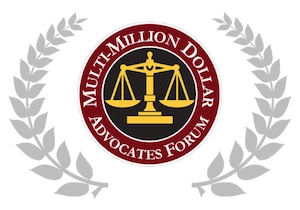

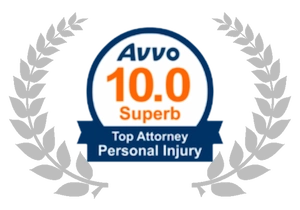
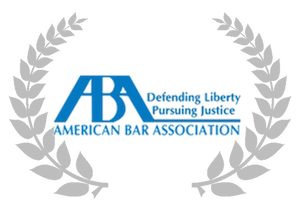



Types of Compensation you May Receive from a Commercial Truck Claim
When a commercial truck accident leaves victims with severe injuries, financial strain, and emotional trauma, seeking compensation is essential for recovery. Unlike standard car accidents, commercial truck claims often involve higher settlements due to extensive medical costs, long-term disabilities, and higher insurance policies carried by trucking companies. Victims of truck crashes are entitled to pursue both economic and non-economic damages, ensuring they receive full compensation for their physical, financial, and emotional losses.
Below are the key types of compensation that truck accident victims may recover in a personal injury claim or wrongful death lawsuit.
Medical Expenses
The most immediate and overwhelming cost after a commercial truck accident is medical treatment. Victims often require extensive medical care, including emergency surgeries, hospital stays, physical therapy, and long-term rehabilitation. In severe cases, injuries may require lifelong medical support, such as wheelchairs, prosthetics, or in-home care.
Types of Medical Expenses Covered in a Truck Accident Claim
- Emergency room visits, ambulance fees, and trauma care
- Hospitalization and intensive care unit (ICU) stays
- Surgeries and follow-up procedures
- Diagnostic tests (MRIs, X-rays, CT scans, bloodwork)
- Physical therapy and rehabilitation
- Prescription medications and medical equipment (braces, wheelchairs, prosthetics)
- Home modifications for permanent disabilities (wheelchair ramps, lifts, etc.)
Insurance companies may try to reduce compensation by arguing that some treatments are unnecessary or unrelated to the accident. Our firm works with medical experts to prove the full extent of your injuries and fight for complete compensation for both current and future medical expenses.
Lost Wages and Reduced Earning Capacity
A severe truck accident can leave victims unable to work for weeks, months, or even permanently. Compensation for lost wages helps cover the income victims miss while they recover. However, some injuries cause long-term disabilities that prevent victims from returning to their previous jobs or from working at all.
Compensation for Lost Wages Includes:
- Wages lost during recovery – Covers paychecks missed due to hospitalization, medical appointments, and rehabilitation.
- Loss of earning capacity – If the victim cannot return to their job or must take a lower-paying position, they may receive compensation for the difference in income.
- Loss of benefits and retirement contributions – If an injury prevents a victim from earning bonuses, commissions, promotions, or retirement contributions, they may be entitled to recover those financial losses.
Victims suffering from long-term or permanent disabilities may also receive compensation for future lost earnings, helping them support their families despite their inability to work.
Disability and Disfigurement
Some truck accident injuries result in permanent disabilities that affect a victim’s mobility, independence, and ability to work. Severe crashes can lead to amputations, spinal cord injuries, paralysis, and traumatic brain damage, all of which may require lifelong medical care.
Types of Disabilities Eligible for Compensation:
- Paralysis (quadriplegia or paraplegia) due to spinal cord injuries
- Loss of limb requiring prosthetics or assistive devices
- Severe burns or disfigurement requiring multiple reconstructive surgeries
- Loss of vision or hearing from head trauma
Permanent disabilities affect every aspect of a victim’s life, from their ability to work and drive to their personal relationships and daily activities. Compensation ensures they receive the resources they need to adapt to these life-changing injuries.
Pain and Suffering
Unlike medical expenses and lost wages, pain and suffering damages compensate victims for the non-financial impact of their injuries. Truck accidents often cause severe physical pain, emotional trauma, and long-term psychological effects that significantly reduce a victim’s quality of life.
Pain and Suffering Compensation Covers:
- Chronic physical pain resulting from injuries such as nerve damage, spinal cord injuries, and fractures.
- Emotional distress, including depression, anxiety, and post-traumatic stress disorder (PTSD).
- Loss of enjoyment of life, if the victim can no longer participate in hobbies, sports, or daily activities they once loved.
- Mental anguish, which includes the psychological impact of scarring, disfigurement, or disability.
Pain and suffering compensation is often calculated using medical records, psychological evaluations, and testimony from experts who can demonstrate the long-term effects of the accident. Our firm fights to maximize these damages so victims receive fair compensation for the hardships they endure.
Wrongful Death Damages for Surviving Family Members
Tragically, many commercial truck accidents result in fatalities due to the immense force of impact. When a loved one is killed in a truck accident, surviving family members may file a wrongful death claim to seek justice and financial support.
How Karell Trial Attorneys Helps Maximize Your Compensation
Insurance companies often try to undervalue truck accident claims, arguing that victims do not need as much compensation as they are requesting. At Karell Trial Attorneys, we aggressively fight back against lowball settlements by:
- Calculating the full extent of your damages, including future medical care and long-term financial losses.
- Working with medical and economic experts to document the lifelong impact of your injuries.
- Negotiating with trucking insurance companies to secure a fair settlement.
- Taking your case to trial if the insurance company refuses to offer a just compensation amount.
If you or a loved one was injured in a truck accident, you deserve to receive the maximum financial recovery possible. Our team is ready to fight for your rights and secure the compensation you need to rebuild your life.
Wrongful Death Compensation May Cover:
- Funeral and burial costs – Helps families cover the expenses of laying their loved one to rest.
- Loss of income and financial support – If the deceased was the primary breadwinner, the family may recover compensation for lost future earnings and benefits.
- Loss of companionship and emotional support – Surviving spouses and children may receive compensation for the loss of love, guidance, and companionship.
- Medical bills incurred before death – Covers any hospitalization, surgeries, or treatments the victim received before passing away.
A wrongful death lawsuit can provide financial security for grieving families while also holding the trucking company accountable for its negligence.
How an Experienced Atlanta Commercial Truck Accident Lawyer from Karell Trial Attorneys Can Make the Difference in Your Case
Hiring an experienced Atlanta commercial truck accident lawyer from Karell Trial Attorneys can be the difference between a low settlement and the full compensation you deserve. Trucking companies and their insurers have teams of attorneys working to minimize their liability, and without skilled legal representation, victims often face unfair blame, denied claims, or inadequate settlements.
Our firm understands the complexities of trucking litigation, including federal safety regulations, corporate liability, and multi-party fault, ensuring that no detail is overlooked. We conduct independent investigations, collect critical evidence, and work with accident reconstruction experts to build an airtight case proving the trucking company’s negligence. By handling all negotiations and legal proceedings, we shield you from insurance adjusters who may pressure you into accepting far less than you are entitled to.
Legal Support Around the Clock
At Karell Trial Attorneys, we understand that accidents don’t happen on a schedule, which is why our legal team is available 24/7 to assist injured victims. When you’re facing the aftermath of a serious commercial truck accident, immediate legal guidance can make all the difference in protecting your rights and ensuring crucial evidence is preserved. Whether you need answers in the middle of the night, on weekends, or during a holiday, we are always here to provide support, answer your questions, and take swift action to strengthen your case.
Bilingual Personal Injury Law Firm
We believe that language should never be a barrier to justice. At Karell Trial Attorneys, we proudly serve both English and Spanish-speaking clients, ensuring that everyone receives the clear, effective legal representation they deserve. Our bilingual legal team is dedicated to making sure that all clients fully understand their rights, the legal process, and the compensation available to them. If you or a loved one prefers to communicate in Spanish, we will provide the same level of personalized, high-quality representation without any confusion or language limitations.
Free Consultations
We offer no-cost, no-obligation case evaluations so you can fully understand your legal options before making any decisions. Too often, accident victims hesitate to seek legal help because they worry about upfront fees. At Karell Trial Attorneys, we believe everyone deserves access to legal representation, which is why we offer free consultations to assess your case, explain your rights, and outline the best course of action. Whether you are wondering if you have a claim or need immediate legal intervention, we are here to provide the guidance you need—without financial risk.
Detailed Investigations to Get You the Most Compensation
Truck accident cases require thorough investigations and strong evidence to hold trucking companies and insurers accountable. At Karell Trial Attorneys, we work with accident reconstruction experts, medical specialists, and forensic analysts to build the strongest case possible. We gather black box data, driver logs, maintenance records, and witness statements to prove liability and maximize your compensation. Our team leaves no stone unturned, ensuring that all responsible parties are held accountable and that you receive the full financial recovery you deserve.
No Cost Until We Win Your Case
We believe that financial concerns should never prevent accident victims from seeking justice. That’s why we work on a contingency fee basis, meaning you pay nothing upfront and owe us nothing unless we win your case. Our success is tied directly to your recovery, so we are fully invested in fighting for the maximum compensation possible. You should never have to struggle financially after a serious accident—let us handle the legal battle while you focus on your recovery, risk-free.
Contact Karell Trial Attorneys for Your Free Consultation – and Get on the Road to Recovery Today
Don’t let a trucking company or its insurers dictate the outcome of your case—their priority is protecting their bottom line, not your well-being. At Karell Trial Attorneys, we have a proven track record of securing multi-million-dollar settlements for truck accident victims, ensuring they receive the financial compensation needed for medical care, lost wages, and long-term recovery. Our legal team knows the tactics insurance companies use to deny or undervalue claims, and we fight back aggressively to ensure you are treated fairly. We will investigate your accident, gather critical evidence, and build a compelling case that maximizes your compensation—whether through negotiations or, if necessary, taking your case to court.
The road to recovery starts with a single step - securing the right legal representation. Call us today at (678) 999-3331 or contact us online to schedule your FREE consultation. There is no risk and no cost to speak with us, and we don’t get paid unless we win your case. Our team is ready to stand by your side, guide you through the legal process, and fight for the justice you deserve. Don't wait—every day that passes is another opportunity for insurance companies to work against you. Take action now and let Karell Trial Attorneys be your strongest advocate.
Get in Touch
Free Consultation
Fields Marked With An “*” Are Required

 (678) 999-3331
(678) 999-3331